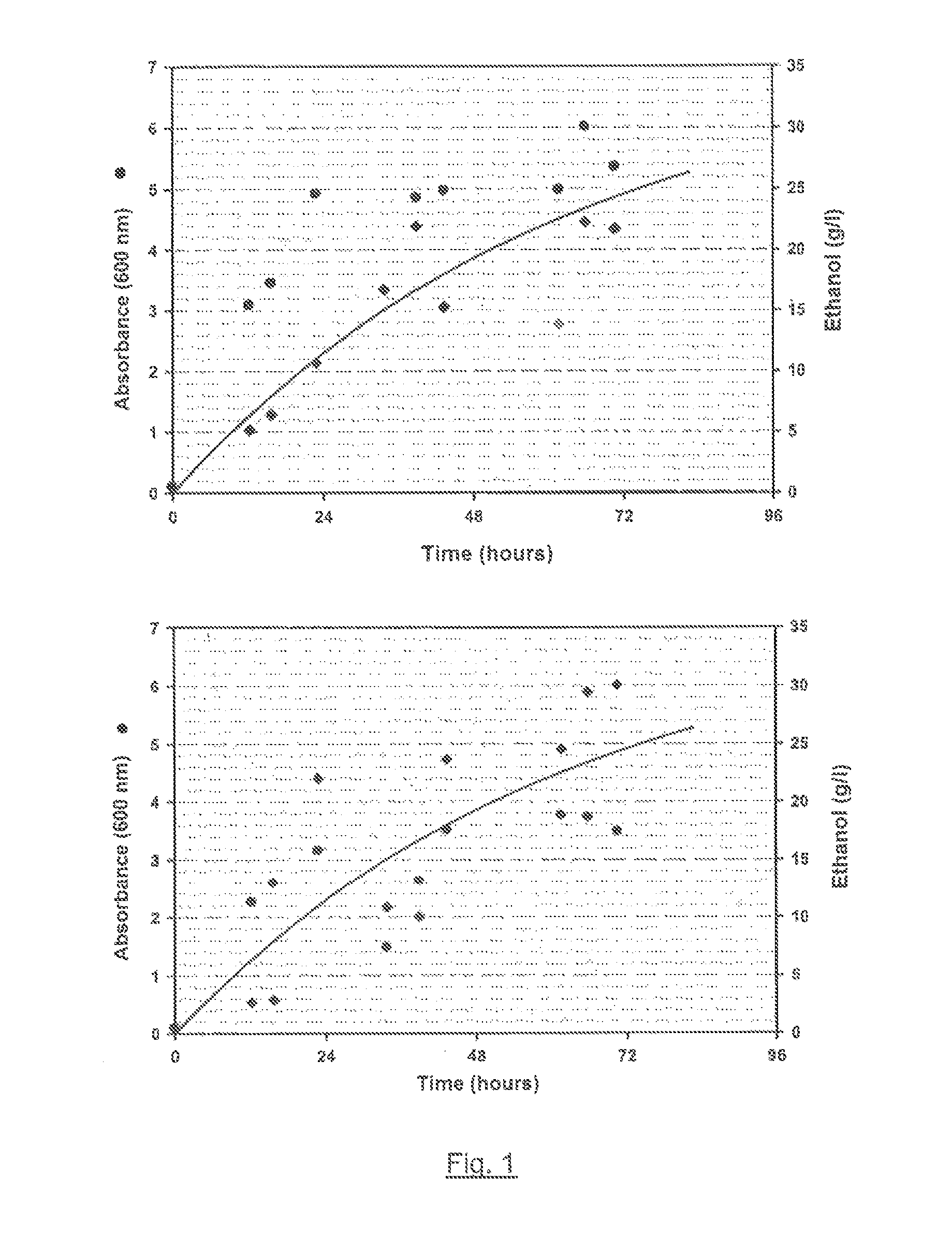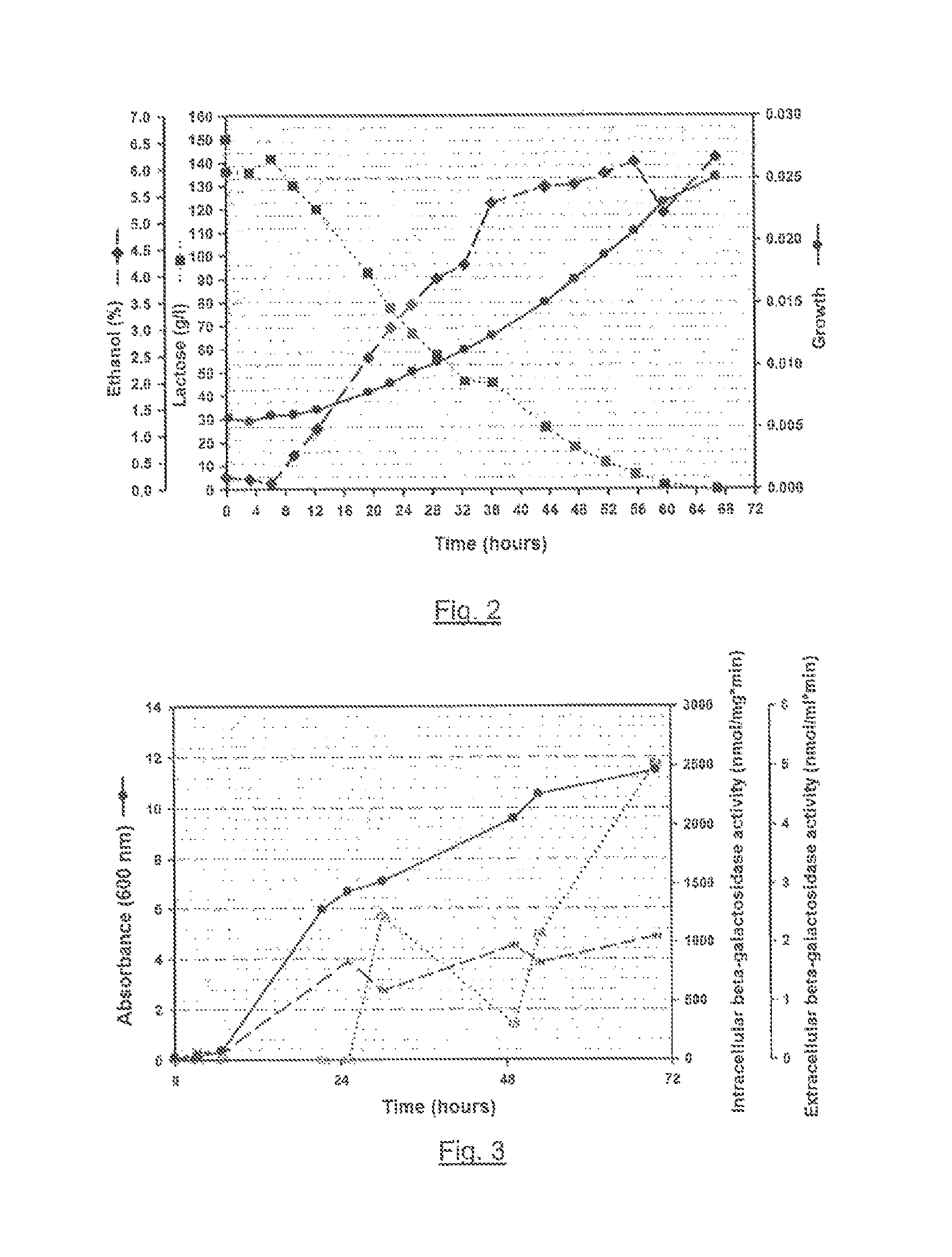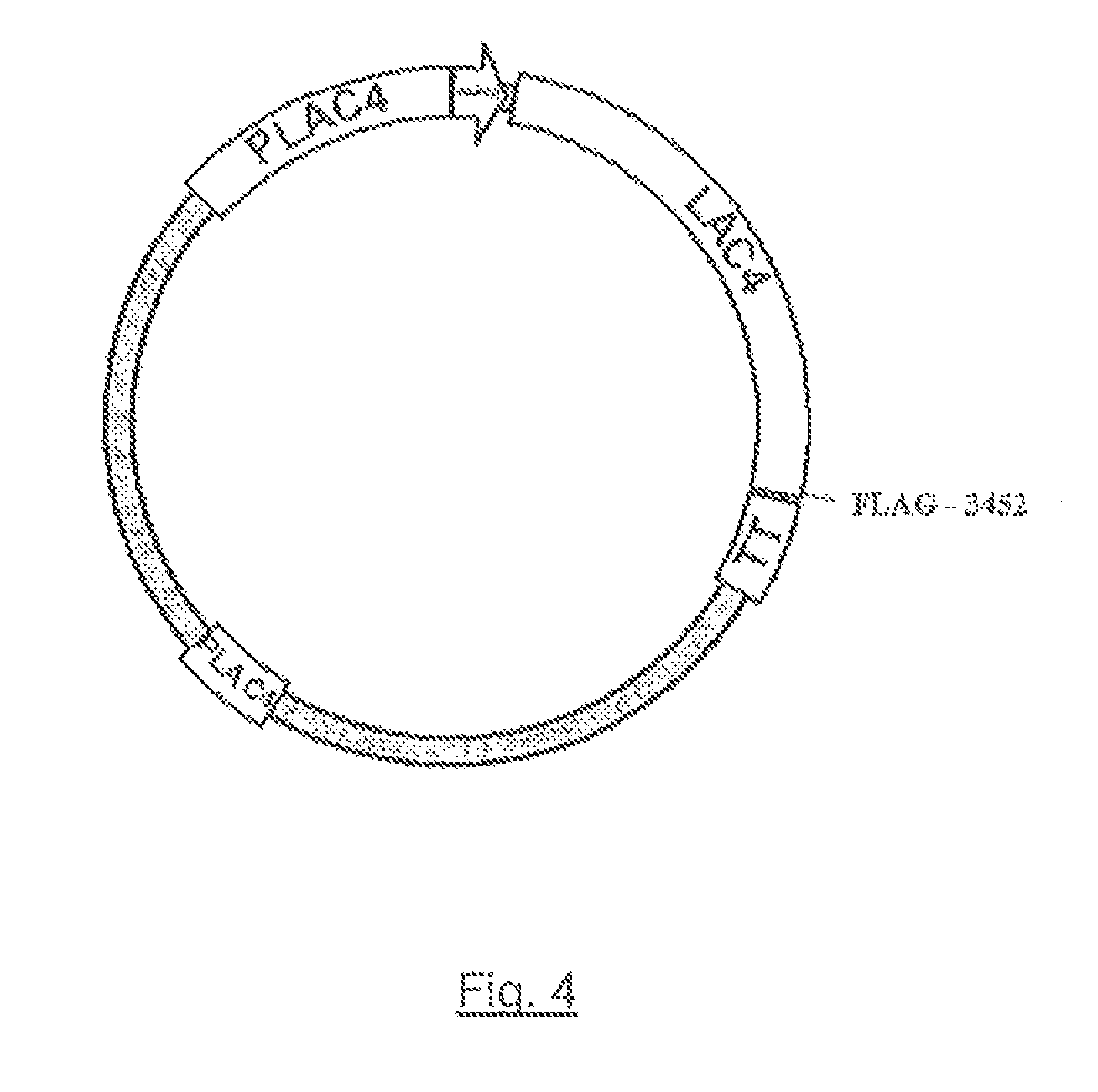Kluyveromyces lactis yeast strain and methods for the production of sugars, ethanol, beta-galactosidase and biomass
a technology of kluyveromyces lactis and lactis, which is applied in the field of kluyveromyces lactis yeast strain and methods for the production of sugars, ethanol, betagalactosidase and biomass, and can solve the problems of small number of microorganisms capable of growing in milk whey, inability to develop a sufficiently profitable technology, and inability to re-exhaul the effect of yeas
- Summary
- Abstract
- Description
- Claims
- Application Information
AI Technical Summary
Benefits of technology
Problems solved by technology
Method used
Image
Examples
example 1
Construction of the Vector and Transformation of the Strain of the Invention
[0054]From the LAC4 sequence encoding the K. lactis β-galactosidase, oligonucleotides primers were designed in order to amplify the gene by polymerase chain reaction (PCR) with the FLAG peptide and subsequently ligate it into a yeast expression vector to obtain the corresponding plasmid.
[0055]The vector contains the promoter of the K. lactis β-galactosidase which is induced in the presence of galactose and / or lactose, a sequence encoding the signal sequence of the yeast preprofactor α, and the terminator of the K. lactis β-galactosidase. The structure of the vector is represented in FIG. 4.
[0056]The gene is incorporated into the yeast in the LAC4 locus by homologous recombination. In the case of this strain, several tandem copies of the gene were integrated in the yeast genome.
[0057]The yeast strain was transformed with the resulting constructs using the lithium acetate method from Ito et al. (Ito et al., 39...
example 2
Media and Culture Conditions of the Strata of the Invention
[0058]With the recombinant strain obtained, cultures in media rich in galactose and / or lactose, as well as other carbon sources (glucose, glycerol, etc.) were carried out in flasks of different volumes (50, 100, 250, 500, 1000 and 2000 ml), trying to maintain a ratio of 1 / 2,5 with respect to the liquid in the flask volume. Cultures were also carried out in larger volumes (fermenters).
[0059]The cultures were carried out at the optimal temperature of the yeast, and with different degrees of stirring (50 rpm-500 rpm) to verify optimal production of biomass, protein or ethanol.
[0060]In the case of the use of whey, this was autoclaved and centrifuged to obtain a lactose-rich medium as clean as possible.
[0061]Also, the minimum and maximum concentrations of inoculum for each of the cases were tested.
EXAMPLE 3
Determination of Lactose and Ethanol Concentrations and β-Galactosidase Activity
[0062]For the determination of lactose and et...
example 5
β-Galactosidase and Ethanol Production of the Strain of the Invention in Whey in Culture in Fermenter
[0065]The strain of the invention was cultured in whey in a fermenter at 30° C. FIG. 2 shows a culture of the strain of the invention in whey, the amount of lactose consumed, the amount of ethanol produced, as well as the growth after 68 hours of culture.
EXAMPLE 6
β-Galactosidase and Ethanol Production of the Strain of the Invention in 5% YPL Culture Medium
[0066]The strain of the invention was cultured in 5% YPL culture medium (1% yeast extract, 0.5% bactopeptone, and 5% lactose) in flasks at 30° C. and 150 rpm stirring. FIG. 3 shows an example of the ability to produce β-galactosidase of the straits of the invention.
PUM
| Property | Measurement | Unit |
|---|---|---|
| temperatures | aaaaa | aaaaa |
| temperatures | aaaaa | aaaaa |
| temperature | aaaaa | aaaaa |
Abstract
Description
Claims
Application Information
 Login to View More
Login to View More - R&D
- Intellectual Property
- Life Sciences
- Materials
- Tech Scout
- Unparalleled Data Quality
- Higher Quality Content
- 60% Fewer Hallucinations
Browse by: Latest US Patents, China's latest patents, Technical Efficacy Thesaurus, Application Domain, Technology Topic, Popular Technical Reports.
© 2025 PatSnap. All rights reserved.Legal|Privacy policy|Modern Slavery Act Transparency Statement|Sitemap|About US| Contact US: help@patsnap.com



